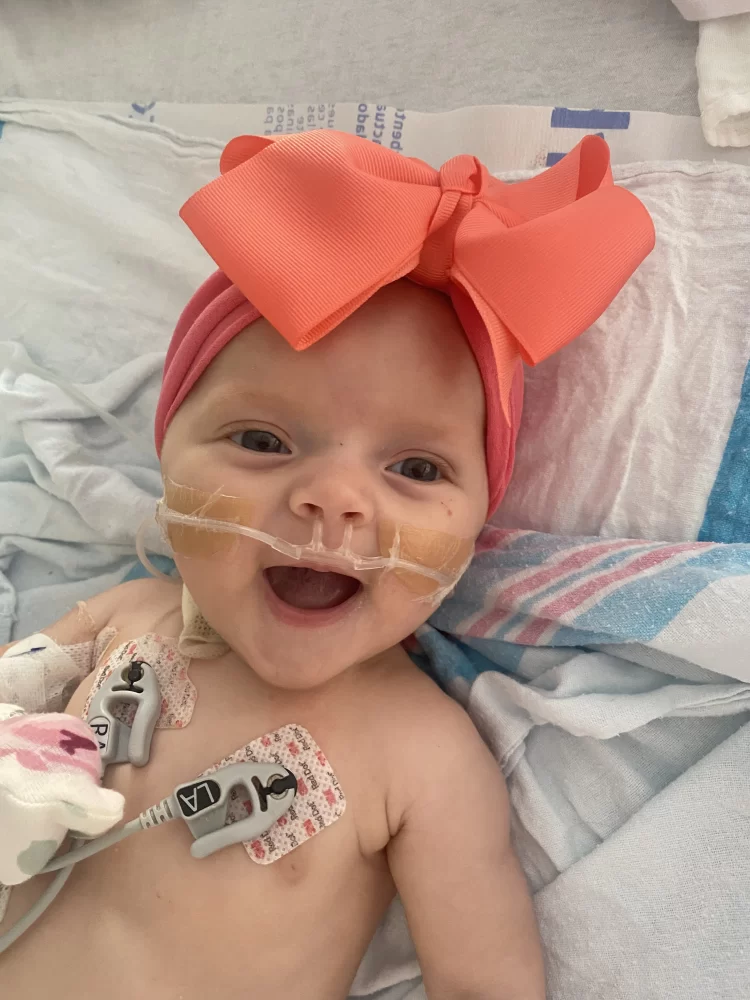Living with Congenital Heart Disease as an Adult: A Journey Through Challenges and Triumphs
For many people born with congenital heart disease (CHD), life doesn’t end at childhood. In fact, medical advancements have allowed individuals with CHD to live into adulthood, though it often comes with its own set of challenges. These challenges aren’t just about the physical impact of the condition, but also the emotional and psychological toll it can take on someone living with a chronic illness for a lifetime. This article explores what it’s like to live with congenital heart disease as an adult and provides insights into managing the condition, treatment options, and how to thrive despite the hurdles.

What is Congenital Heart Disease?
Congenital heart disease refers to heart conditions that are present at birth. These conditions can vary widely in severity, from mild defects that may not require intervention, to severe conditions that can lead to heart failure or the need for a transplant. CHD includes a variety of structural issues within the heart, such as holes in the heart, issues with heart valves, and malformed blood vessels. While these conditions were once considered fatal for many children, improved medical technology and treatments have drastically increased life expectancy, and many individuals with CHD are living well into adulthood.
Capital Health Medical Center – Hopewell
capital health medical center hopewell
1 Capital Way, Pennington, NJ 08534, USA

The Transition from Childhood to Adulthood
As children with congenital heart disease grow, the need for continued monitoring becomes critical. Many adults with CHD were born before the era of advanced cardiac interventions, so their heart conditions were diagnosed and treated in a more limited way. By adulthood, they may face complications due to the progression of their condition, which can include arrhythmias, heart failure, and other issues that require specialized care. Unlike more common adult-onset heart conditions like coronary artery disease, CHD presents unique challenges that require lifelong management.
The Unique Health Challenges for Adults with CHD
Adults living with congenital heart disease often face health challenges that are not immediately obvious. While some may live relatively normal lives, they are at a higher risk for heart-related issues than those without CHD. These challenges can include:
- Increased risk of arrhythmias: Adults with CHD are at greater risk of developing irregular heart rhythms, which can lead to serious complications such as stroke or sudden cardiac arrest.
- Heart failure: Over time, the heart’s ability to pump blood effectively may decline, leading to symptoms of heart failure such as shortness of breath, fatigue, and fluid retention.
- Physical limitations: Some adults with CHD may need to limit strenuous activities or avoid certain exercises, which can impact quality of life and lead to a more sedentary lifestyle.
- Psychological impact: Dealing with a chronic heart condition can also take a mental toll. Many adults with CHD experience anxiety, depression, or a sense of isolation due to the constant need for medical care and the knowledge of their health risks.
Living with the Condition: Real Stories of Resilience
While the medical aspects of living with congenital heart disease are important, it’s equally essential to consider the human stories behind the diagnosis. Meet Sarah, a 32-year-old woman diagnosed with a congenital heart defect at birth. Despite undergoing several surgeries as a child, Sarah has spent much of her life managing her heart condition. Now, as an adult, she works as a graphic designer and leads an active life, though she regularly attends check-ups with her cardiologist. “It’s been a challenge, but I’ve learned to live with it,” Sarah says. “I take it one day at a time and make sure to follow my doctor’s advice.”
Similarly, John, who has lived with CHD for 45 years, shares how he balanced work and personal life despite his condition. “I didn’t let CHD define who I am. I’ve had a successful career and have raised a family, but I’m always aware of my heart health,” he shares. Both Sarah and John’s stories illustrate that while congenital heart disease is a lifelong challenge, it’s also possible to live a fulfilling life despite the limitations it may impose.
Managing Congenital Heart Disease as an Adult
Management of congenital heart disease as an adult requires a proactive and comprehensive approach. Key aspects of care include:
- Regular check-ups: Routine visits to a cardiologist who specializes in adult congenital heart disease are essential for monitoring heart function and preventing complications.
- Medications: Depending on the individual’s condition, medications to control blood pressure, prevent arrhythmias, or manage heart failure may be necessary.
- Exercise and lifestyle modifications: Though some physical limitations may apply, staying active is crucial for maintaining overall health. A tailored exercise plan can help manage weight, reduce stress, and improve heart health.
- Mental health support: Living with a chronic illness can cause anxiety, stress, and depression. Accessing counseling, joining support groups, or talking to a therapist can help improve mental health and provide emotional support.
Advancements in Treatment and Care
Over the years, there have been significant advancements in the treatment of congenital heart disease. Today, adult congenital heart disease patients have access to a range of medical options that were unavailable in the past. From minimally invasive surgeries to more targeted medications, treatment options have greatly improved. Moreover, healthcare providers are better equipped to offer a holistic approach to care that addresses both the physical and emotional aspects of living with CHD.
Conclusion: Hope for the Future
Living with congenital heart disease as an adult is undoubtedly challenging, but it’s not without hope. With continued medical advancements and support from healthcare providers, individuals with CHD can lead long and fulfilling lives. Understanding the condition, staying proactive with medical care, and finding emotional support are key to managing the disease and embracing life despite its challenges.
For those seeking more personalized care or recommendations, consider visiting HeartCare Hub, where experts specialize in adult congenital heart disease treatment and offer tailored advice to support your health journey.






















Deborah Heart and Lung Center
deborah heart and lung center
200 Trenton Rd, Browns Mills, NJ 08015, USA